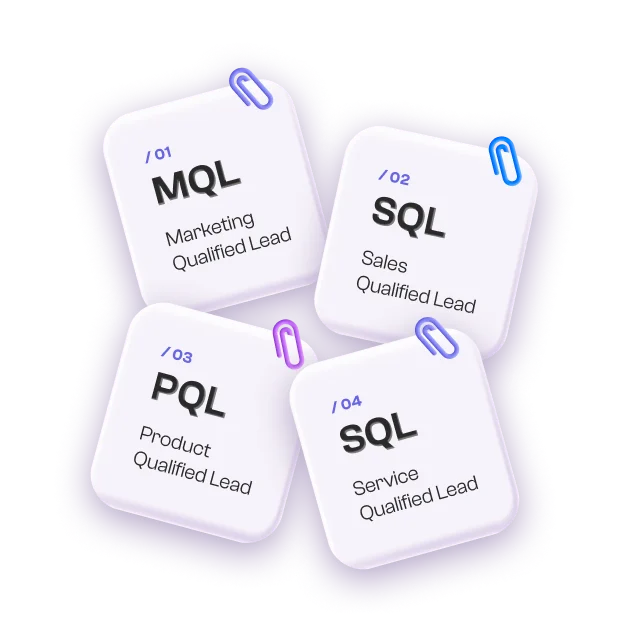Acquiring high-quality leads is crucial for success. Whether you want to expand your customer base or boost sales, buying leads can be a strategic move. Whether you’re asking “Where can I buy leads for my business” or “How to buy leads for my business,” this guide will provide the answers you need. Following the steps outlined here, you’ll be well-equipped to integrate lead buying into your sales and marketing efforts effectively, driving significant results in 2024.
Buying leads can significantly shorten your sales cycle by providing a list of pre-qualified prospects who have shown interest in your industry, products, or services. This strategic approach lets you focus on converting leads rather than spending time and resources on prospecting. Additionally, buying leads can help you target specific demographics and markets more efficiently, ensuring your marketing efforts are directed toward the most promising potential customers.
What Does It Mean to Buy Leads?
Buying leads involves purchasing contact information and other relevant data about potential customers. These leads can be sourced from various providers specializing in collecting and selling this information. When you buy leads, you’re essentially acquiring a list of prospects who might be interested in what your business has to offer. This can include email addresses, phone numbers, job titles, and other pertinent details that help you connect with potential customers.
The practice of buying leads is common in both B2B and B2C markets. Lead providers use various methods to gather this information, such as online forms, surveys, event registrations, and other engagement activities. These methods ensure that the leads you purchase have already indicated some level of interest in your offerings, making them more likely to convert into paying customers.
Understanding how to buy leads for your business is crucial to ensure you invest in high-quality data. This involves researching where to buy leads, evaluating different providers, and selecting the ones that best align with your business goals. There are numerous places to buy leads, including online marketplaces and specialized lead generation companies, each offering different types of leads like buy b2b sales leads or buy sales leads online.
By knowing where to buy leads and understanding the different options available, you can make an informed decision that will benefit your business. This process requires a clear strategy and a thorough understanding of your target audience to ensure the leads you purchase will effectively convert into paying customers.
Why Should You Buy Leads for Your Business?
Buying leads can be a powerful tool for accelerating your sales process and increasing revenue. Here are a few reasons why you should consider buying leads for your business:
- Time Efficiency – Sourcing leads on your own can be incredibly time-consuming. The process involves extensive research, data collection, and outreach, all of which can divert your attention from other crucial aspects of your business. Buying leads allows you to focus on converting them into customers rather than spending countless hours on prospecting. This efficiency means you can see faster results and allocate your time and resources more effectively.
- Scalability – Purchasing leads enables you to scale your marketing efforts quickly and reach a broader audience. As your business grows, so does your need for a larger pool of potential customers. Buying leads provides a scalable solution that can support your expansion efforts, allowing you to tap into new markets and demographics without the delay of building your contact list from scratch.
- Targeted Marketing – Lead providers often offer segmented lists, allowing you to target specific demographics, industries, or geographic locations. This segmentation ensures that the leads you buy are more likely to be interested in your products or services, increasing the chances of conversion. By targeting specific groups, you can create more personalized and effective marketing campaigns, leading to higher engagement and better results.
- Cost-Effective – When done correctly, buying leads can be more cost-effective than other marketing strategies, providing a higher return on investment (ROI). Traditional marketing methods such as advertising and cold calling can be expensive and yield unpredictable results. In contrast, purchased leads have already shown some level of interest in your offerings, making them more likely to convert and thus delivering better value for your marketing spend.
- Immediate Results – Unlike organic lead generation methods that can take months to show results, buying leads provides an immediate boost to your sales pipeline. This immediacy can be crucial for businesses looking to achieve quick wins and maintain a steady flow of potential customers.
- Access to Advanced Data – Many lead providers offer detailed information about each lead, including company size, job title, purchasing behavior, and more. This data allows you to tailor your sales approach and create more compelling pitches, improving your chances of closing deals.
Different Types of Leads Available for Purchase
There are various types of leads you can buy, each serving different business needs. Here are the most common ones:
1. Buy Sales Leads
Sales leads are individuals or companies that have expressed interest in purchasing a product or service. These leads are often gathered from online inquiries, event registrations, or other forms of engagement. When you buy sales leads, you’re getting potential customers who are already somewhat familiar with your offerings. This familiarity can make the sales process smoother and faster, as these leads have already demonstrated a need or desire for what you sell.
2. Buy B2B Leads
B2B leads, or business-to-business leads, are contacts from companies that might benefit from your products or services. These leads are crucial for businesses that sell to other businesses. Buying B2B leads can help you identify key decision-makers and streamline your sales process. With B2B leads, you’re targeting organizations that have the potential to make significant purchases, often leading to larger deal sizes and longer-term contracts.
3. Buy Business Leads
Business leads encompass a broader category that includes both B2C (business-to-consumer) and B2B leads. These leads can be useful for a variety of marketing campaigns aimed at different target audiences. By buying business leads, you gain access to a diverse pool of prospects, allowing you to tailor your approach depending on the specific needs of each segment. This versatility makes business leads valuable for any comprehensive marketing strategy.
Steps to Buying High-Quality Leads
To ensure you get the best value from your investment, follow these steps when buying leads:
1. Identify Your Target Audience
Before purchasing leads, you need to have a clear understanding of your target audience. This involves defining the characteristics of your ideal customer, including demographics, industry, company size, and pain points. By knowing who you’re targeting, you can buy leads that are more likely to convert.
- Demographics – Consider the age, gender, income level, and other demographic factors of your ideal customer. Knowing these details helps in tailoring your marketing messages to resonate with your audience.
- Industry – Identify the specific industries that are most likely to benefit from your products or services. Different industries have unique needs and challenges that your offerings can address.
- Company Size – Determine the size of the companies you want to target, whether they are small businesses, mid-sized companies, or large enterprises. This will help you focus on the right market segment.
- Pain Points – Understand the common challenges and pain points your potential customers face, and how your offerings can address these issues. This knowledge allows you to position your products or services as the ideal solution to their problems.
Having a detailed profile of your target audience will help you buy leads that are more relevant and likely to result in successful sales.
2. Choose a Reputable Lead Provider
Not all lead providers are created equal. It’s essential to do your research and choose a reputable provider that offers high-quality leads. Look for providers with positive reviews, transparent practices, and a proven track record. Here are some factors to consider:
- Reputation – Check online reviews and testimonials from other businesses that have used the lead provider’s services. A good reputation indicates reliable and high-quality leads.
- Transparency – Ensure the provider is transparent about how they source their leads and the criteria they use to qualify them. Transparency builds trust and ensures you know exactly what you’re paying for.
- Track Record – Look for providers with a history of delivering high-quality leads and helping businesses achieve their sales goals. A proven track record indicates consistent performance and reliability.
Ask for sample leads to assess their quality before making a purchase. A reputable provider should be willing to provide samples to demonstrate the value of their leads.
3. Evaluate Lead Quality
Once you’ve purchased leads, it’s crucial to evaluate their quality. Check for accuracy, relevance, and engagement potential. High-quality leads should include complete contact information and be aligned with your target audience. Here are some key evaluation criteria:
- Accuracy – Verify that the contact information provided is correct and up-to-date. Inaccurate information can waste your sales team’s time and resources.
- Relevance – Ensure the leads match the characteristics of your target audience. Leads that align well with your ideal customer profile are more likely to convert.
- Engagement Potential – Assess the likelihood that the leads will be interested in your products or services based on their past behavior or expressed interests. High engagement potential indicates a higher chance of successful conversion.
Regularly monitor and analyze the performance of your purchased leads to ensure they meet your expectations. This ongoing evaluation will help you refine your lead purchasing strategy and maximize your ROI.
Top Places to Buy Leads
There are numerous platforms and providers where you can buy leads. Some of the top places include:
Lead Generation Companies
These companies specialize in collecting and selling leads tailored to various industries. They provide detailed and verified leads, making them a reliable choice for businesses looking to buy leads for business purposes. Here are some notable examples:
- SalesAR – SalesAR uses a unique methodology to attract potential clients, increasing income and brand recognizability. They offer a comprehensive lead generation process using over 30 different tools, providing services like appointment setting, prospect research, and anti-spam campaigns. With a proven track record across more than 40 different industries, SalesAR delivers results quickly, often within the first month.
- ZoomInfo – Known for its extensive database, ZoomInfo offers detailed profiles and contact information for millions of businesses and professionals. It is particularly useful for B2B companies looking to buy B2B leads.
- DiscoverOrg – Another reputable provider, DiscoverOrg, delivers highly accurate and verified leads, focusing on technology, sales, and marketing sectors.
- Data.com – Previously part of Salesforce, Data.com provides comprehensive contact and company data, helping businesses identify and reach their target audience effectively.
Online Marketplaces
Websites like these offer access to vast databases of leads that you can filter based on your criteria. These platforms provide flexibility and a wide range of options, allowing you to buy sales leads online that fit your specific needs:
- UpLead – UpLead offers a user-friendly platform where you can access verified business contacts and leads. The tool allows you to filter leads by various criteria such as industry, location, and company size.
- AeroLeads – AeroLeads helps you find email addresses and phone numbers of potential leads. It integrates with popular CRM systems, making it easy to manage and track your lead data.
- Hunter.io – Known for its email-finding capabilities, Hunter.io allows you to discover professional email addresses from domains and companies. It’s a great tool for expanding your contact list quickly.
Industry-Specific Providers
Some lead providers focus on specific industries, offering highly targeted lists. These specialized providers can be particularly useful if you’re targeting a niche market and need highly relevant leads:
- ThomasNet – Specializing in the industrial sector, ThomasNet provides detailed information about manufacturers, suppliers, and service companies. It’s an excellent resource for businesses looking to connect with industrial partners.
- Hoovers – A subsidiary of Dun & Bradstreet, Hoovers offers in-depth company profiles and business leads across various industries. It’s particularly useful for businesses seeking comprehensive data on potential B2B clients.
By leveraging these top places to buy leads, you can access high-quality prospects tailored to your business needs. Whether you choose a lead generation company, an online marketplace, or an industry-specific provider, these options provide a wealth of opportunities to enhance your sales pipeline and drive business growth.
Maximizing the Value of Purchased Leads
Buying leads is just the first step. To maximize their value, you need to implement effective strategies for nurturing and converting them. Here are some key approaches to ensure you get the most out of your investment:
- Personalized Outreach – Tailor your communication to address the specific needs and interests of your leads. Personalization increases engagement and conversion rates. Use the data you have about your leads to craft personalized emails, messages, and offers that resonate with their unique situations. Mention their industry challenges, refer to their business goals, and demonstrate how your product or service can solve their specific problems.
- Follow-Up – Consistent follow-up is key to keeping your leads warm. Use a combination of emails, calls, and social media interactions to stay on their radar. Develop a follow-up schedule to ensure you’re regularly checking in with your leads without overwhelming them. Use CRM tools to track interactions and set reminders for follow-up actions.
- Lead Scoring – Implement lead scoring to prioritize your leads based on their likelihood to convert. This helps your sales team focus on the most promising prospects. Assign scores based on criteria such as engagement level, company size, job title, and past interactions. High-scoring leads should receive more attention and resources, while lower-scoring leads might need further nurturing.
- Marketing Automation – Use marketing automation tools to streamline your lead nurturing process. Automating repetitive tasks ensures timely and consistent communication. Set up automated email sequences, follow-up reminders, and engagement tracking to keep your leads engaged. Automation also allows you to segment your leads and send targeted content based on their behavior and interests.
- Content Marketing – Provide valuable content that addresses your leads’ pain points and positions your business as a trusted solution provider. Create a mix of content such as blog posts, whitepapers, case studies, and webinars that educate and inform your leads. Content marketing not only helps in building trust but also in keeping your leads engaged and moving them through the sales funnel.
- Feedback Loop – Establish a feedback loop with your sales and marketing teams to continually improve your lead generation and nurturing strategies. Analyze the performance of your purchased leads, gather feedback from your sales team about lead quality, and adjust your criteria for future purchases. Continuous improvement will help you get better results from your lead buying efforts.
- Customer Journey Mapping – Understand the journey your leads take from initial contact to conversion. Map out the different stages and identify key touchpoints where you can engage with them effectively. By understanding their journey, you can tailor your strategies to meet their needs at each stage, increasing the likelihood of conversion.
Conclusion
Buying leads can be a game-changer for your business, allowing you to save time, scale your marketing efforts, and achieve a higher ROI. By understanding what it means to buy leads, why it’s beneficial, and how to purchase high-quality leads, you can effectively integrate this strategy into your sales and marketing processes. Whether you need to buy sales leads, buy B2B leads, or buy business leads, following the steps outlined in this guide will help you maximize the value of your investment and drive significant business growth in 2024.
Why Choose SalesAR?
SalesAR stands out as a top choice for businesses looking to buy high-quality leads. With a unique methodology that has been tested and refined over time, SalesAR offers a comprehensive approach to lead generation. Our services include appointment setting, prospect research, and anti-spam campaigns, utilizing more than 30 different tools and applications to ensure we deliver the best results.
SalesAR has a proven track record of success across more than 40 different industries, helping businesses achieve their goals through targeted and effective lead generation strategies. Our commitment to transparency, flexibility, and professionalism ensures that you receive the highest quality leads tailored to your specific needs.
Take Your Business to the Next Level
Ready to take your business to the next level? Start by buying high-quality B2B sales leads tailored to your industry and target audience with SalesAR. With the right leads, you can accelerate your sales process, reach your growth targets, and build a strong customer base. Don’t wait, take action now and see the difference it can make. Click here to learn more about where to buy leads and how to get started today!




